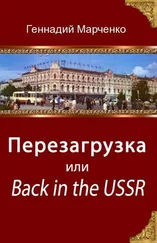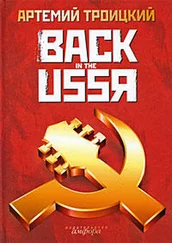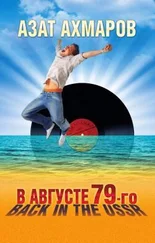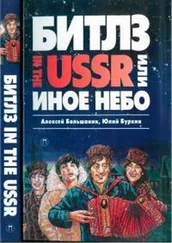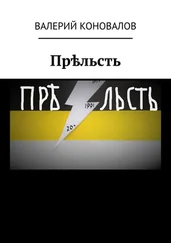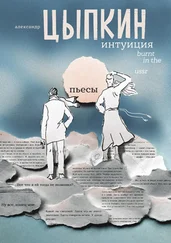Instead of becoming feral and cruel as a result of his treatment, Pakhan is withdrawn. He reacts to simple acts of kindness with suspicion. Once I have met my quota I help him finish his and then we get down to the important business of preparing ‘Boris Fyodorovich’ from industrial ‘BF’ glue. Pakhan sticks close by my side; unlike the others I don’t tease him.
“Pakhan, over here,” I call, adding water to the glue and pouring it through a filter. On some days I collect as much as two litres of spirits. It’s risky to store the alcohol so we drink it straight away. There are more than enough volunteers. When he has drunk his fill of BF, Pakhan hides under the workbench and goes to sleep wrapped in his jacket.
When Pakhan nears his release date a Toliatti factory sends someone to offer him a job. The emissary is a young Komsomol girl who brings some clothes — several sizes too large for him. He stands sullenly before her looking like a mediaeval courtier in his enormous jacket, the lining bulging through rips. Politely the girl asks: “Are you thinking of taking a correspondence course when you get out of here?”
Too deaf to hear her question, Pakhan cowers in a corner: “It wasn’t me! I didn’t fucking do it!”
Pakhan is reluctant to leave our company. On the day he is due for release he runs off and hides. We eventually find him huddled under a workshop bench, his thin childish hand gripping a jar of BF. Pakhan looks up at me and smiles his toothless grin: “Ivan, wouldn’t it be fucking wonderful if we could feel like this all the time?”
Everyone leaving camp plans to find a good job, marry, get ahead, and of course, never end up inside again. I don’t suffer from these illusions, but nevertheless I worry about what I’ll do after my release. I have nowhere to live in Chapaevsk and my former plant is refusing to take me back. To apply anywhere else with a passport like mine [27] Prison records were written in internal passports which had to be shown when applying for a job or a place to live.
is not a cheerful prospect. Some of the lads who are up for release ask me to come and live with them, but it’s clear how that will end up. I dream of a life as a lighthouse-keeper or a watchman at an observatory. I want to go somewhere far away from so-called civilization, deep in the taiga where there are no Party organizations or vodka shops. Remembering how peaceful I felt in the forest looking after Yura’s bees I decide to seek out a similar kind of existence, far away from Chapaevsk.
“I’m never going back to work,” I announce to Sanka and VV. “I’ve inhaled enough chlorine and buried too many workmates. It’s a pointless life. Everyone says they’ll do their ten years [28] After ten years in a hazardous job a worker was entitled to early retirement.
and then get out, but by then another kid has arrived or they need money to buy a TV set. I’m not going down that road. I’m sick of being told how to live.”
“And how exactly are you going to make your protest? As soon as you open your mouth you’ll go straight back inside,” VV points out.
“Well, if I don’t protest openly at least I won’t lift a finger to help the system. Anyway, it’ll only be a matter of time before I start to drink again and that’ll lead me straight back to the LTP. I’m going south to pick up casual work. In the countryside I’ll be free to do more or less as I like. Country people stick more closely to the old ways.”
VV turns to Sanka: “So Vanya is going to become a Wanderer. [29] A Christian sect that had its roots in Catherine the Great’s reign. Followers led a nomadic life in the forests of Russia, refusing to co-operate in any way with the civil and ecclesiastical authorities.
Perhaps you think our beloved Comrade Brezhnev is the Antichrist?”
“The very same.”
“And our Founder and Teacher, Comrade Lenin?”
“The Father of Lies,”
“The Communist Party of the USSR?”
“The vessel of Satan.”
“And all who submit to its authority?”
“Devil’s spawn!”
“But this is not the nineteenth century,” VV points out. “Our Russian people don’t support vagabonds and holy fools with the generosity of bygone years. How are you going to live?”
“I’ll register with a collective farm. No one expects you to work there. The farm will give me a bed and food and my time will be my own. Whenever I get sick of it I can take to the road, if the police pick me up my papers will say I’m a collective farm worker. Vassya-Honeycake told me there are plenty of farms in the Kuban eager to take people on.”
VV bursts out laughing: “All over the USSR peasants are busting a gut trying to leave the farm. You only find old women, drunks and mental defectives there now, and you want to run away to a collective farm!”
“There’s nothing left for me here. I no longer have a family. These days I’m responsible to no one.”
“But you can’t run away from yourself,” says VV.
“I’m not trying to. All I want to do is get away from everyone who knows me. Especially my mother.”
I have sworn never to return home to my parents. While I was inside I learned that my younger brother Sashka died after drinking tainted samogon on New Year’s Eve. He came home and fell into a coma in front of my mother and stepfather who were both too drunk to notice their son’s condition. By the time they sobered up it was too late to call an ambulance. Perhaps no hospital could have saved him; all the same I blame my parents for Sashka’s death.
VV and I are released together. We got on well in jail but on the outside our differences begin to show. No doubt his important mother will find him some easy work — and no doubt he’ll soon start taking pills again. Still, he lends me money for a ticket to Sochi.
Before I leave Toliatti I go back to Barkovka to meet Sanka on his release day. I know no one else will come for him so I bring a coat and some clothing to spare him the shame of going home in a prison jacket. Sanka’s family live not far from the hostel where I’m staying. He invites me up to meet them.
A heavily pregnant woman opens the door. Fat rolls from her neck to her knees. She squints hard at us for a minute and then throws her arms around Sanka: “Tolik! You’re home. Oi! Grish… get a bottle, our lad’s back.”
Inside the flat youths and girls in various states of drunkenness are draped over chairs and boxes. A few of them turn indifferently to stare at us. Sanka’s Heroine Mother waddles up to a comatose man and punches her huge fist into his ear. “Grish, I said wake up you prick-for-legs. Our Misha’s back. Give him a drink.”
I fear that Sanka will not enjoy the taste of freedom for long.
* * *
I take a train to Sochi and spend a few weeks wandering along the Black Sea coast, picking up odd jobs. I fall in with other tramps who help me to find places to sleep. We prefer the warmth and companionship of railway stations but the police come round continually waking us up. Sometimes we sleep on stationary trains in sidings but local youths barge through the carriages, taking money off those too drunk to resist.
An older tramp shows me how to make some money by standing in the ticket queue for the Sochi hydrofoil and selling my place to latecomers. This man thinks I’m really wet behind the ears, although I’ve been a Decembrist and a zek. “How can you reach the age of 35 and not know what a spets [30] ‘ Spetsialnii priyomnik ’: a lock-up for petty criminals.
is? They have them in all big cities and railway stations. If you get picked up without documents they throw you in for 30 days while they cook up something really incriminating against you. Three times in the spets earns you a year in camp.”
Читать дальше
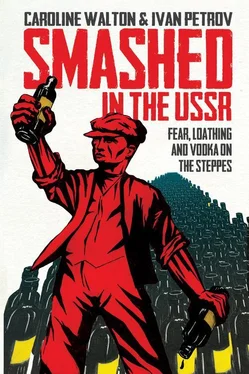
![Геннадий Марченко - Перезагрузка или Back in the Ussr. Книга 1. [СИ]](/books/53319/gennadij-marchenko-perezagruzka-ili-back-in-the-uss-thumb.webp)
